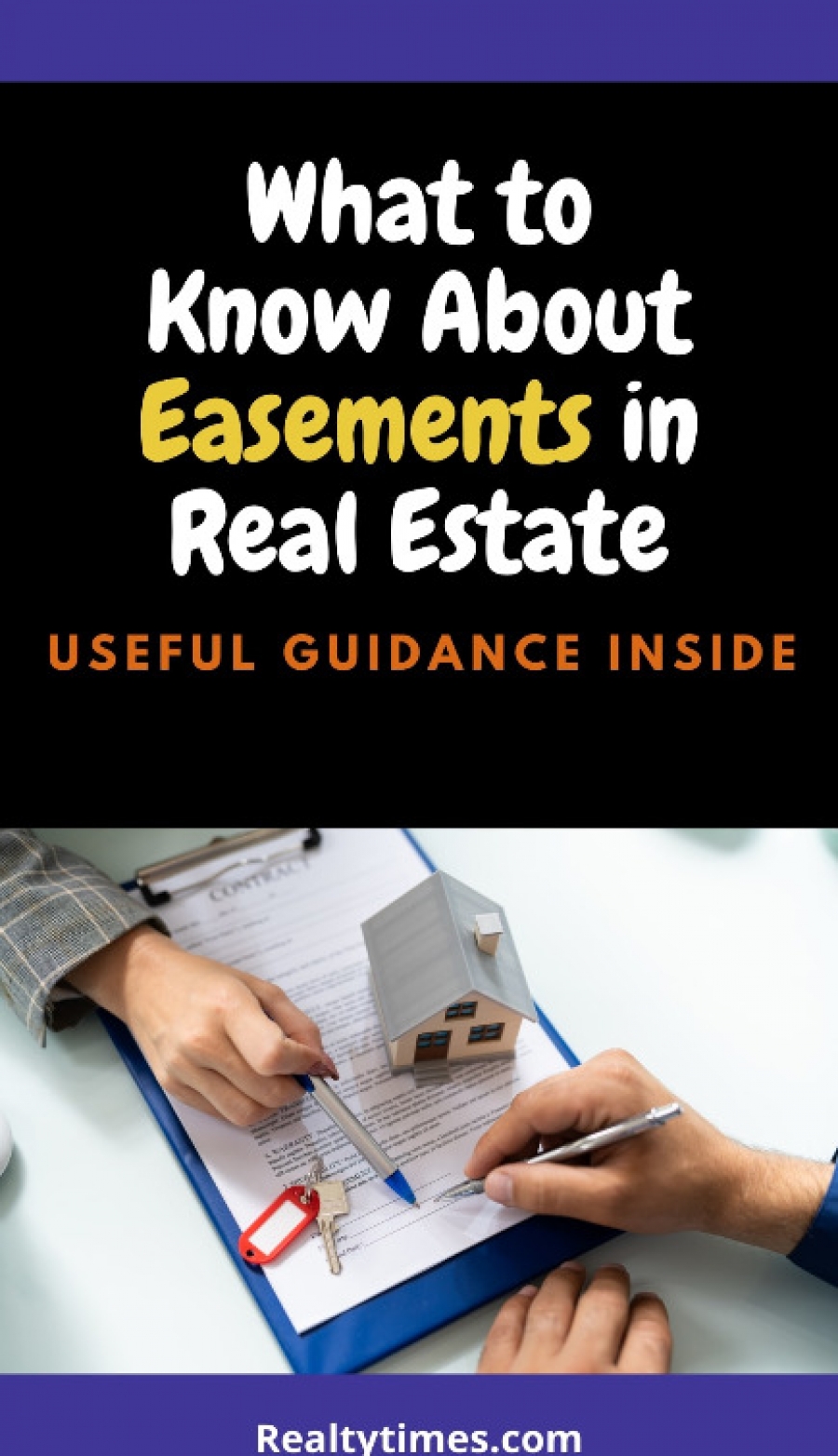Things Home Buyers Should Know About Easements
Easements play a crucial role in property law, shaping the rights and boundaries associated with land ownership. Whether you are a homeowner, buyer, or investor, understanding easements is essential to avoid potential legal disputes and make informed decisions about property transactions.
We will explore the definition of an easement, the types of easements, and their implications on property rights.
What is an Easement?
An easement is a legal right that grants someone the non-possessory interest to use another person's property for a specific purpose. It allows the easement holder (the "easement holder") certain privileges, such as accessing a portion of land, using a pathway, or running utilities through the property without owning it.
Easements are typically established through a written agreement between the easement to the property owner (the "servient estate") and the easement holder (the "dominant estate").
Before buying land, or a home, checking for any easements with the property is highly recommended.
Definition of an Easement
An easement is a legally binding agreement that entitles a party to use a specific portion of another person's property for a particular purpose. It is essential to note that while easements grant certain rights to the easement holder, the property owner retains ownership and control over the land.
Types of Easements
In property law, easements are legal rights that allow someone to use a portion of another person's property for a specific purpose. There are different easements, each with its characteristics and implications. Understanding these types is crucial for property owners, buyers, and investors to navigate the complexities of property rights and ensure informed decision-making.
Here are some of the various easements, including easements appurtenant, easements in gross, and prescriptive easements, shedding light on their unique features and applications in real estate transactions.
Easement Appurtenant
This type of easement is attached to the ownership of a specific property and benefits the owner's use and enjoyment. The easement passes from one property owner to the next when the property is sold or transferred.
For example, a landlocked property may have an easement allowing access through a neighboring property.
Easement in Gross
Unlike easements appurtenant, easements are not tied to a specific property. Instead, they benefit an individual or entity, granting them a personal right to use a portion of another person's property.
Utility companies often hold easements in gross to install and maintain utility lines.
Prescriptive Easement
A prescriptive easement is acquired through open, notorious, continuous, and hostile use of another person's property without permission. If someone consistently and openly uses a property for a specific purpose for a legally required period, they may gain the right to continue using it as an easement.
Easement on Property
When there is an easement on the property, it means that a portion of the land is subject to the rights of another party. This can restrict the property owner's full use and control over that area.
For example, if there is an easement for a driveway across a property, the owner must allow the easement holder to use that portion for access.
A land survey will often depict what the easement looks like on paper.
Implications and Considerations With Easements
If you are buying or selling property with an existing easement, it is crucial to understand the terms and conditions of the easement thoroughly. Considerations include:
Easement Rights
Review the specifics of the easement, such as the purpose, location, and extent of the granted rights. Understand any limitations or restrictions affecting your property's use and value.
Easement Maintenance
Determine who is responsible for maintaining the easement area, including any costs involved. This may vary depending on the agreement's terms and the easement type.
Future Modifications
Consider whether the easement allows for any modifications or alterations over time. Understanding these possibilities can help you plan for any potential land-use changes.
Potential Legal Issues
If you are still determining the implications of an easement, consult with a qualified real estate attorney to ensure you fully understand your rights and obligations.
Rights and Restrictions
Easements grant specific rights to the easement holder, which can restrict the property owner's full use and control over the affected area. Understanding the extent and limitations of these rights is essential to avoid conflicts or misunderstandings.
Property Value
An easement on a property can influence its market value. Prospective buyers may consider the potential limitations or benefits associated with the easement when determining the property's worth.
If you have a buyer's agent, one of their roles will be to guide how the easement could impact the value and future saleability of the property. Buyer's agents have responsibilities such as this to ensure their clients are making the right purchase decision.
Likewise, property owners should assess how an existing or proposed easement may impact their property's value.
Access and Use
Easements often involve granting access to a property or allowing specific amenities, such as pathways, driveways, or utility lines. Understanding who has the right to access and use these areas and any associated maintenance obligations is crucial for both the property owner and the easement holder.
Maintenance and Costs
Property easements may come with responsibilities for maintenance and associated costs. In the easement agreement, clarifying who is responsible for maintaining the easement area and covering any expenses is essential. This can include repairs, landscaping, or utility maintenance, depending on the nature of the easement.
Sometimes there is no agreement in place which isn't always the best situation. I was selling a home with a common drive recently, and no formal maintenance agreement existed.
While all the neighbors get along and pitch in with the cost, something could change anytime. In my experience being a real estate agent for the past thirty-seven years, it is always best to have a recorded agreement.
Final Thoughts
Easements are integral to property law, regulating the rights and boundaries associated with land ownership. Understanding easement's definition, types, and implications is essential for property owners, buyers, and investors.
By comprehending the terms and conditions of easements, you can make informed decisions regarding property transactions and avoid potential legal disputes in the future.






